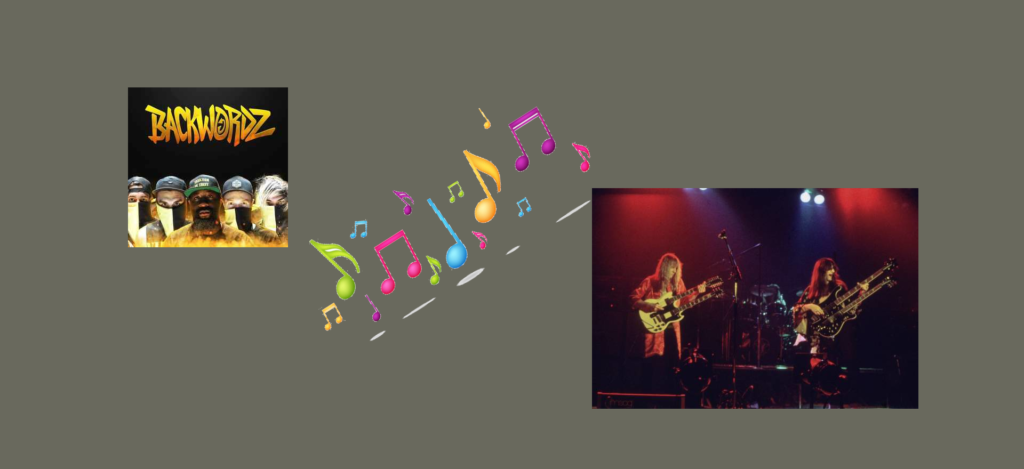A Libertarian Overture: Examining the Ideological Content of Rush and BackWordz
Music has long been a vehicle for expressing political ideologies, and within the realm of rock music, bands like Rush and BackWordz have conveyed libertarian themes through their lyrics and compositions. Despite belonging to different eras and genres within rock, both bands have explored themes of individualism, freedom, and skepticism of authority. Let’s delve into the libertarian content present in the music of Rush and BackWordz, examining how each band approaches these themes in their own unique way.

Rush: The Prog-Rock Pioneers of Liberty
For over four decades, Rush captivated audiences with their virtuosic musicianship and thought-provoking lyrics. Led by the philosophical musings of drummer Neil Peart, Rush’s discography is replete with themes of individualism, self-reliance, and skepticism towards authority.
In songs like “The Trees,” Rush uses allegory to critique government intervention and forced equality, presenting a narrative where maples and oaks argue over their rights, mirroring real-world debates on government interference in societal matters. The song suggests that natural hierarchies and differences among individuals should be respected rather than artificially equalized.
Similarly, “Red Barchetta” paints a dystopian picture of a future where oppressive regulations restrict personal freedom, yet the protagonist finds solace and liberation in driving an outlawed vintage car. Through vivid storytelling and driving rhythms, Rush celebrates the spirit of defiance against authoritarian rule.
Moreover, Rush’s magnum opus, “2112,” tells the story of a dystopian society where individuality is suppressed by a collectivist regime. The protagonist discovers a guitar and rediscovers the power of music, ultimately leading to rebellion against the oppressive rulers. The album serves as an anthem for individualism and artistic freedom, themes deeply rooted in libertarian philosophy.
BackWordz: Modern Agitators for Liberty
Hailing from a different era and embracing a different subgenre of rock, BackWordz infuses elements of rap metal and hardcore punk with libertarian ideology, delivering politically charged messages with raw intensity. Fronted by Eric July, a vocal libertarian activist, BackWordz tackles contemporary socio-political issues with fervor and defiance.
Songs like “Statism” and “Self Ownership” confront the encroachment of government power on individual liberties, advocating for personal autonomy and limited government intervention. BackWordz doesn’t shy away from controversial topics, addressing issues like police brutality, censorship, and crony capitalism head-on.
In “Individualism,” BackWordz celebrates the uniqueness of every individual and rejects collectivist ideologies that seek to homogenize society. The band champions the right to self-expression and personal sovereignty, echoing libertarian principles of non-aggression and voluntary cooperation.
Furthermore, BackWordz’s collaboration with libertarian economist Walter Block in the song “Capitalism” underscores their commitment to free-market principles and economic freedom. Through their music, BackWordz encourages critical thinking and challenges listeners to question authority, embracing the spirit of rebellion and individual empowerment.
Harmonizing Libertarianism through Music
While Rush and BackWordz come from different musical backgrounds and eras, both bands share a commitment to libertarian ideals of individual freedom, self-reliance, and resistance against oppressive authority. Through their lyrics and compositions, they inspire listeners to question the status quo, embrace personal autonomy, and stand up against tyranny.
Whether it’s Rush’s epic prog-rock anthems or BackWordz’s fiery rap-metal tracks, both bands contribute to the rich tapestry of libertarian thought within the realm of rock music. In a world where political discourse often feels polarized and divisive, the unifying power of music serves as a reminder that liberty and individualism are timeless themes that transcend genres and generations.


1 Comment